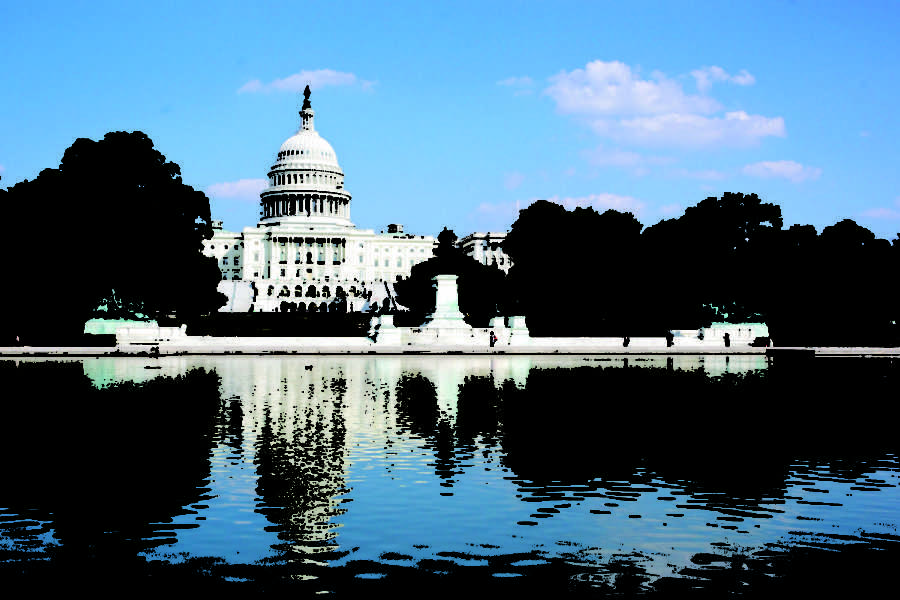Belding: Life goes on, no matter who wins the election
Photo courtesy of Flickr/Vironevaeh
Opinion: Belding 10/6
November 6, 2012
Rick Santorum, former U.S. senator from Pennsylvania, recently visited Ames to express his support for Congressman Steve King. Depending on the results of Election Day, King might be the new representative for Iowa’s 4th Congressional District. Santorum expressed his support in no uncertain terms: “If we lose, and Obamacare is implemented, it’s over.”
Santorum said that implementing the Patient Protection and Affordable Care Act would spell the end of American prosperity. “We will no longer hear a candidate get up and talk about 47 percent of the people — at a moment when nobody was supposedly recording — and talk about 47 percent of the people living off government benefits because everyone will be,” Santorum said.
We do indeed have a choice — just like we have a choice every election. One of the benefits of living in a country where our Constitution says, “The House of Representatives shall be composed of members chosen every second year by the people of the several states,” is that we have a biennial opportunity to completely change part of our government. Similarly, one third of the Senate is up for re-election every two years, and presidential elections occur every four years.
No matter who wins office today, life will go on. The United States as a country and America as an idea will not die off, as Santorum asserted when he painted an apocalyptic vision of contemporary politics and added that “President [Barack] Obama wants to change [the] vision” of America.
That’s what politics is. We take what we have agreed upon in our Constitution as our book of rules, and we decide from there what should be done about our own modern problems. Since it is us, not the signers of the Constitution, who now breathe the air and see the sunlight on this earth, it is us who get to define what our priorities are and should be. Politics is a function of the present, not the past.
Regardless of what we decide to do, though, overnight change does not happen. Say what you will about slippery slopes, but we do not — in a republic like ours, with a constitution like ours — suddenly wake up one day to see churches locked up by policemen, government liaisons in our homes monitoring what we feed our children and panels of doctors tellings us whether we can receive medical care. Obama’s own success (or lack of it) since his Inauguration Day demonstrates that. Armed with “Hope” and “Change,” his administration has significantly delivered on some of the biggest themes from his 2008 campaign.
Climate change seldom converges with politics; Guantanamo Bay is still a prison camp. The post-partisanship Obama hoped to usher in? No matter how intractable congressional Republicans have been, it seems like it wasn’t more than a few days before Obama rushed home to the “They’re not playing fair” rhetoric that sounds more like a whining, pouting child than it does a head of state.
Santorum’s fear of waking up to the manifold results of what Thomas Jefferson called “a long train of abuses and usurpations, pursuing invariably the same Object” of reducing us “under absolute despotism,” requires just that — a long train.
Losing elections is like the breakup of a relationship. No matter how much it might really suck at first, it’s not the end of the world.
What is important is what we do with the electoral result. Will the losers stay bitter for two or four years and completely retire until they can win? They shouldn’t dare to do so. Offering American voters an alternative in the next election requires good-faith efforts to govern even during their minority — it requires what Walter Lippmann called the indispensable opposition — rather than sitting at home waiting for things to get so bad the electorate looks to them in desperation.
Elections do not add laws to our codes; that comes later. All it takes to learn that is three minutes of Schoolhouse Rock. In fact, elections have nothing to do with the political process.
If Santorum is right, and America really is at the divergence of two roads, one more and one less traveled, then he and all the people who agree with him will continue their political involvement throughout the time between today and Tuesday, Nov. 2, 2014. Losing an election is no time to step back; it is a time to step forward. If it is the public world of government that stands ready to deprive us of our rights, it is in the public arena that those rights need to be defended.

















